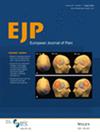Cannabinoids for Acute Postoperative Pain Management: A Systematic Review and Meta-Analysis of Clinical Trials
Abstract
Background
Poor acute postoperative pain control, coupled with the use of intravenous medications with a limited and unsafety efficacy spectrum, has led to new therapeutic alternative explorations to reduce adverse events while increasing its analgesic efficacy. There cannabinoids have been proposed as a useful control agent in post-surgical pain. Nevertheless, to date, there is no solid evidence to evaluate them. The current article sought to determine cannabinoids' effectiveness and safety in the aforementioned context.
Methods
A systematic review of controlled clinical trials evaluated the efficacy and safety of cannabinoids for the treatment of acute postoperative pain. The study was structured under the Cochrane recommendations. Primary outcomes included: pain intensity reduction, the number and doses of rescue analgesics and adverse events.
Results
Of 62 articles found, only five were included. Four of them presented high inter-observer agreement and 60% were classified as having a low risk of bias. When evaluating the objectives of each article, a disparity was found in the investigative methods and terms implemented. Due to the heterogeneity of methods, it was not possible to carry out meta-analytic evaluations and only qualitative evaluations were feasible.
Conclusions
Despite finding contradictory evidence in relation to the analgesic cannabis effect in the postoperative context, methodological disparities found in the included articles and the impossibility of performing collective quantitative analyses were more significant. Before concluding with the well-known sentence: “further intervention studies are necessary”, this report has identified limitations and has proposed recommendations for the planning and execution of future cannabis clinical trials, which will support new and necessary evidence for stronger meta-analytic reviews.
Significance
The management of severe pain after surgery, and the use of intravenous drugs with limited and potentially unsafe effectiveness, has led to the exploration of new treatment options to minimize side effects while improving pain relief. Cannabinoids have been suggested as a potential solution for managing post-surgical pain, but there is currently insufficient evidence to assess their effectiveness. The purpose of this article was to evaluate the effectiveness and safety of cannabinoids in this context.

 求助内容:
求助内容: 应助结果提醒方式:
应助结果提醒方式:


